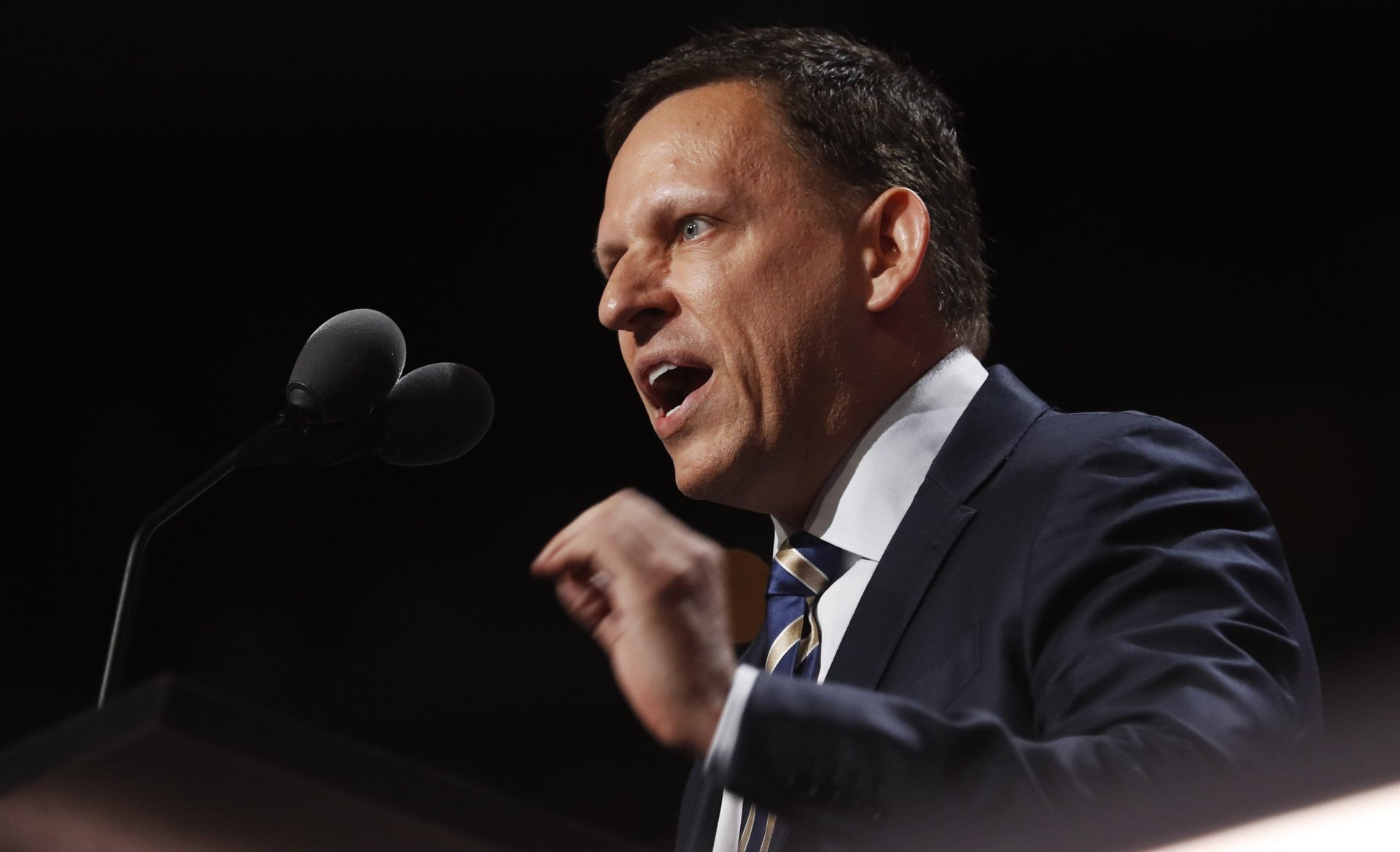Fresh from killing Gawker, Peter Thiel turns his wrath on Washington, DC’s terrible metro
Washington, DC’s beleaguered Metro system has a powerful new foe: Peter Thiel.


Washington, DC’s beleaguered Metro system has a powerful new foe: Peter Thiel.
In an op-ed published in The Washington Post this week, the Silicon Valley venture capitalist, who funded a lawsuit against Gawker Media that led to its demise this year, lamented the decline of the public transportation system in the capital. He called it a prime example of how difficult it is to get anything done in the US, from infrastructure projects to health care.
Today our government finds it hard just to make a website… Similar dysfunction is everywhere, at every level. One of the most dramatic examples is in the nation’s capital: Metro was a marvel when it opened in 1976, and today it’s an embarrassing safety hazard. Ticket machines don’t work; escalators are broken; the trains sometimes don’t even stay on the tracks.
Of course, Thiel, as a Donald Trump supporter, said the Republican candidate will be able to fix these problems. Trump, whose empire has had a host of its own financial troubles, has played the anti-establishment card, something Thiel echoed as recalled the Manhattan Project, which he said was “difficult, unprecedented—and successful.”
Comparisons of subway-tunnel repairs to the development of an atomic bomb aside, Washington’s metro is indeed troubled. Last year, it became the first US subway system to be placed under federal supervision in October after a series of safety lapses and shut down for 24 hours earlier this year.
The Washington Metropolitan Transit Authority revealed yesterday that ridership in the 2016 fiscal year fell 6% to 321 million trips from the year prior. Some riders have chosen other alternatives amid service changes. It also said Thursday that it is considering cuts (pdf) to late-night and weekend service for repairs by an additional eight hours, further curbing service that it had trimmed for maintenance.
“The Metrorail system is too large, too complex, and too deep to address existing maintenance needs in such a short window,” it said.